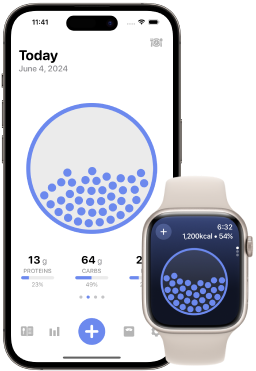
5 Effective Ways to Manage Food Cravings: A Guide to Healthy Choices
Food craving is just another human being nature. Cravings can often derail even the best-intentioned eating plans, whether it’s a sudden desire for chocolate, salty snacks, or a creamy dessert. However, with effective strategies, you can control these urges and make healthier decisions. How?
In this blog, we’ll explore five effective strategies to help you take control of your cravings and make healthier choices, along with an introduction to the Calory app, a tool designed to support you in your wellness journey.

1. Identify and Manage Triggers
Cravings are often tied to specific triggers, such as stress, boredom, or certain environments. Which means, it is a response to certain negative emotions in our body. For example, for some sugary cravings are their comfort zone. They may find themselves craving sugary snacks during late-night hours or reaching for comfort food when feeling anxious. Hence, understanding the root cause of these cravings is key to managing them effectively. Pay attention to the patterns surrounding your cravings—when they occur, what you’re doing at the time, and how you’re feeling emotionally. By keeping a mental or physical journal of these instances, you can uncover recurring themes. Once identified, work on addressing the triggers directly. For example, if stress is a common cause, try practicing relaxation techniques like meditation or deep breathing to help reduce anxiety. Taking proactive steps to manage these triggers can significantly reduce the frequency and intensity of cravings.
2.Plan Your Meals and Snacks
A planned eating routine can help you in the long run to prevent cravings from arising in the first place. When you eat meals at regular intervals, your blood sugar levels remain stable, reducing the likelihood of sudden hunger pangs or an urge to snack. A well-balanced meal that includes a mix of protein, fiber, and healthy fats can keep you full and energized throughout the day. Another important part of planning is having healthy snacks at hand. Rather than allowing yourself to give in to the temptation of the vending machine, prepare healthy snacks that are filling and convenient: fresh fruit, a yogurt, or a handful of nuts. Planning ahead for meals and snacks helps avoid submission to unhealthy choices when hunger strikes. A little planning goes a long way.
3. Practice Mindful Eating
Mindful eating is about being present and fully engaged during your meals, which helps you understand your body’s hunger and fullness cues. Whenever you are eating mindlessly, you tend to end up consuming more than what your body needs, hence resulting in overeating and consequently more intense cravings afterwards. So, a very good way to start with mindful eating is by slowing down. You must enjoy each bite, paying attention to the flavors and the texture, and to all the aromas involved with it. This helps make your experience of food so much better, while it also allows your brain sufficient time to note when it feels satisfied. Also, try to avoid distractions in your meals as this is an effective way of deepening your mind-body connection. With time, it helps you get an increased hold on the cravings and build a healthy relationship with food.
4. Get Enough Sleep
While we all love to get a really good sleep, this part of our life is often misunderstood by many. We tend to use social media, phones and, screens more in bed than any other time of the day. This results in cutting down on our sleep time. Sleep plays a crucial role in regulating hunger hormones, such as ghrelin and leptin. When you don’t get enough rest, ghrelin levels increase, signalling hunger, while leptin levels decrease, making it harder for you to feel satisfied. This imbalance can amplify food cravings, particularly for sugary or high-carb foods, as your body seeks quick energy sources. Prioritizing a consistent sleep schedule of 7-9 hours per night can significantly help in curbing these cravings. A well-rested body is better equipped to maintain balanced energy levels and make thoughtful decisions about food. Creating a calming bedtime routine, such as reading or practicing relaxation techniques, can also help improve sleep quality and, in turn, reduce the likelihood of cravings.
